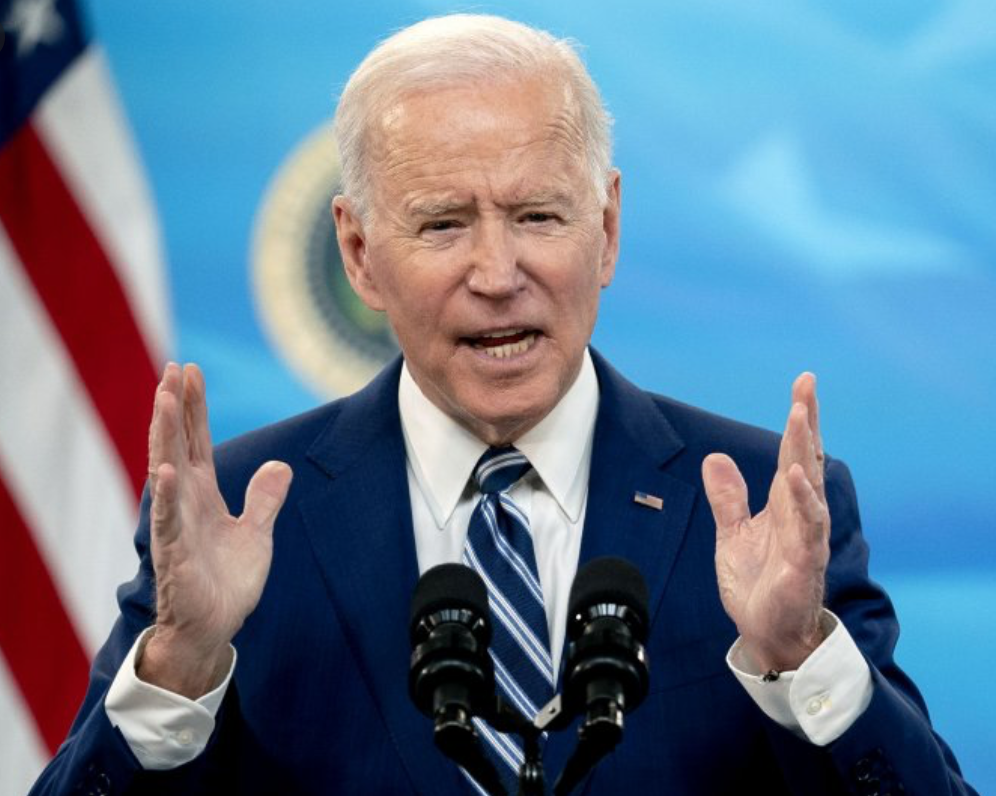Sweeping Changes, Ambitious Goals: Biden Focused on COVID-19, Charting a Path to Normal

Image Courtesy of UPI
By Justin Lamoureux
This week, President Biden focused squarely on COVID-19. In addition to revealing plans for considerably expanded vaccine availability in the weeks ahead, the administration has also begun charting a course for how they might (in part) facilitate a return to normal life, and what changes need to be made regarding the distribution of vaccines as access becomes more widespread.
When most people hear the word “passport,” they undoubtedly think of the identification needed to leave the country. It is possible, however, that such a term could adopt a completely new meaning; the notion of a vaccine passport has gained traction since President Biden pledged that the country will start returning to normal over the summer. The administration has been collaborating with private companies (and the U.S. Department of Health & Human Services) to develop a precedent for requiring proof of vaccination. While such a plan would require substantial coordination between dozens of agencies and experts, vaccine passports would likely be free and easily accessible. They could be accessed using a scannable code similar to an airline boarding pass, or printed on paper. The Center for Disease Control is currently working to determine which organizations will be allowed to issue these certificates. Accordingly, the largest challenge to officials will be to minimize the passports’ susceptibility to hacking or counterfeiting. No conclusive plan has been released, and it remains unclear if vaccine passports will be offered. If they are, however, there is a possibility that most establishments will require them for entry.
Taking office in January, President Biden set a goal to administer 100 million vaccines during the first 100 days of his administration. It took only 58 days to reach this goal. Last Thursday, Biden announced plans to double his original target, and vaccinate 200 million Americans by his 100th day as president. Additionally, he declared that 90% of American adults will be eligible for the vaccine by April 19. These seem like practical ambitions: As of March 29, 143 million shots have been administered nationwide. 15.5% of the population is fully vaccinated, with another 13.5% having received their first dose. The average vaccination rate is 2.71 million doses per day; should this continue, roughly 50 percent of the population will be at least partially vaccinated by mid-May. Pfizer, Moderna and Johnson & Johnson – the three foremost vaccine manufacturers – have promised to deliver 260 million doses (enough for every American adult) by this time. In June, Pfizer & Moderna intend to offer an additional 100 million doses; this would allow the country to inoculate another 50 million people. Soon, the country will face two challenges: How to convince anyone still skeptical to get vaccinated, and what to do with a growing stockpile of doses.
As the COVID-19 vaccine becomes accessible to more Americans, the Biden Administration could phase out mass vaccination sites, instead encouraging the federal government to distribute doses via local retail pharmacies. So far, millions of vaccines have been dispatched to “pilot” community centers in several states, including California, Florida and New York. These hubs represent part of a $4 billion federal effort that funds over 1,000 smaller-scale vaccination centers across the country; both provide additional support (including supplies) to states across the country. Despite their price tag, these mass vaccination sites are administering a small percentage of the shots given across the country each day. Federal data has revealed that a retail pharmacy program – which has enlisted 21 chains and 17,000 stores – can reach a considerably larger number of Americans in a shorter time. In the Biden Administration, there is a general consensus that people are generally more willing to walk to their local pharmacy for the vaccine than travel to a federal vaccination site (which may not be easily accessible).
The Biden Administration has experienced considerable success in ensuring that COVID-19 vaccinations occur at an efficient rate. Moving forward, this could have significant political implications for the president. There are potential obstacles on the horizon, though; recent data suggests that new strains of the virus are becoming more common across the country. These could potentially evade vaccinations, and pose a higher risk of complications. As states further loosen various restrictions (e.g. masks, social distancing, etc.) in the coming weeks, this could lead to another surge in COVID-19 cases. In fact, cases have already started rising in a number of states; when addressing the situation during a press conference earlier this week, Dr. Rochelle Walensky, director of the Centers for Disease Control and Prevention, likened it to an “impending doom.” Biden’s goal needs to be preventing such an uptick by expediting the vaccination process for many Americans. How this process unfolds in the coming weeks could have major implications; for this administration, and for the country at large.





